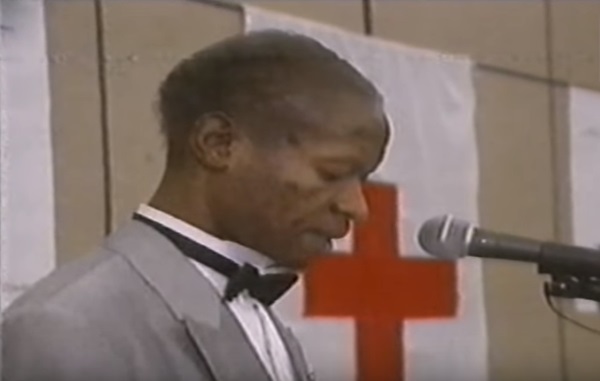Philly Bongole Lutaaya probably one of the most talented musicians Uganda has ever produced. Lutaaya was good at many instruments and his singing skill hit the beat in late 1980’s when he was unmatched. As a young musician, Lutaaya horned the skills in singing and playing instruments with a Crane Band in the 1970’s. He later teamed up with musicians in Zaire present-day Democratic Republic of Congo. In 1981, Lutaaya moved to Sweden to further his music career. Exposed to the latest recording technology there, Lutaaya arched a living in Sweden as he hit the breakthrough. In 1986 and 1987, his hit song Born in Africa gave him what he had desired for a long time.
At the time, President Yoweri Museveni had just shot his way to power and Uganda was in a postwar recovering mood. People looked out for songs that would rekindle their hope. The deadly HIV AIDS virus was quickly spreading and killing people, the toll was so high that in some districts like Rakai which was the epic center hundreds of the families were wiped out. President Museveni’s National Resistance Army or NRA government had a multitude of tasks to accomplish; poverty, restoring infrastructure and tackling HIV AIDS. Anti – HIV messages were disseminated to the public but many still related the disease to witchcraft or bad luck.
Lutaaya was a single father of three when he moved to Sweden in 1986. He returned to Uganda in 1988 to perform his Born in Africa song Album at Lugogo. There are reports that before his big performance Lutaaya was always in and out of hospital treating fever. When he went back to Sweden, Lutaaya tested for HIV which turned positive. On 13th April 1999, Lutaaya became the first public figure in Uganda to declare he had HIV AIDS. The news shocked the country at a time HIV stigma was an all-time high. In fact, many people strongly felt that Lutaaya was pulling stands to sell his new music. This created controversy around his health and career. “I wanted to go on shouting loud about this crisis, I ignored people who were calling me a liar, people who were calling me an opportunist. I knew time would come when they would understand.” With his immunity compromised by HIV, Lutaaya contracted tuberculosis and multiple traumas that weakened him but he pushed himself to accomplish several music tasks. Sometimes he defied doctor’s advice so as to complete his songs. Lutaaya recorded a song that was to become the Anti – AIDS anthem of thoughts and the most important in his career alone. “But I couldn’t catch up because a lot had to be completed as my legacy to Uganda and the world.” Lutaaya looked physically strong but internally he knew death was lacking very close. He captured this writing the song, he wanted to break the feel and stigma. “How do you feel now?” “Mentally I feel the same.”
Back in Uganda, sick and frail; Lutaaya traveled to many primary and secondary schools and spoke to public gatherings to spread the Anti – HIV AIDS message. Governments supported him in his campaign. In August 1989, Lutaaya was confined to a Stockholm hospital because he was very sick. he was flown back to Uganda a few weeks later and passed away on 15 December 1989 at the age of 38. His music is very much alive and every December his Christmas songs top the charts in Uganda. Lutaaya was named a hero and a lifetime achiever. The Philly Lutaaya Initiative stirred by his brother Abbey Lutaaya carries on his AIDS campaign.

